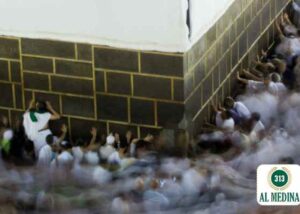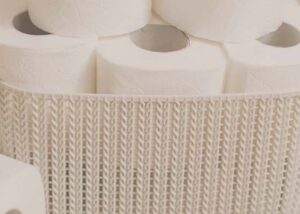If you perform Tawaf and then realise that there was blood, urine or other types of impurity on your body or clothes, is your Tawaf valid?
Quran
Hadith
Islamic Text
Yes, your Tawaf is valid if you perform it and then realise that there was blood, urine or other types of impurity on your body or clothes.
«إِنَّ هَذِهِ الْمَسَاجِدَ لَا تَصْلُحُ لِشَيْءٍ مِنْ هَذَا الْبَوْلِ، وَلَا الْقَذَرِ إِنَّمَا هِيَ لِذِكْرِ اللهِ عَزَّ وَجَلَّ، وَالصَّلَاةِ وَقِرَاءَةِ الْقُرْآنِ»
The Prophet ﷺ said, ‘Indeed the Masaajid (mosques) are not meant for urine and filth. Rather, they are for the remembrance of Allah, prayer, and the recitation of the Qur’an.’ (Sahih Muslim 285 – 100).
Without doubt it is objectionable to bring impurity into a Majid. As mentioned in the Hadith above. Therefore, it will not be permitted to enter Masjid a-Haram or any other Masjid with impurity. However, if one does perform Tawaf whilst carrying impurity it will be valid. Although there will be a decrease in reward.
It is unlikely that a Muslim will intentionally enter the Masjid and perform Tawaf whilst having impurity on his clothes or body. It is more probable that this occurs inadvertently. Nevertheless, the Tawaf will remain valid in both cases. This is due to the fact that physical purity during Tawaf is recommended (Sunnah) and not obligatory. However, it should be noted that ritual purity (Wudu) is Wajib.
(وَالطَّهَارَةُ فِيهِ)
مِنْ النَّجَاسَةِ الْحُكْمِيَّةِ عَلَى الْمَذْهَبِ قِيلَ وَالْحَقِيقِيَّةِ مِنْ ثَوْبٍ وَبَدَنٍ وَمَكَانِ طَوَافٍ وَالْأَكْثَرُ عَلَى أَنَّهُ سُنَّةٌ مُؤَكَّدَةٌ كَمَا فِي شَرْحِ لُبَابِ الْمَنَاسِكِ
(قَوْلُهُ وَالْأَكْثَرُ عَلَى أَنَّهُ) أَيْ هَذَا النَّوْعُ مِنْ الطَّهَارَةِ فِي الثَّوْبِ وَالْبَدَنِ سُنَّةٌ مُؤَكَّدَةٌ شَرْحُ اللُّبَابِ بَلْ قَالَ فِي الْفَتْحِ: وَمَا فِي بَعْضِ الْكُتُبِ مِنْ أَنَّ بِنَجَاسَةِ الثَّوْبِ كُلِّهِ يَجِبُ الدَّمُ لَا أَصْلَ لَهُ فِي الرِّوَايَةِ. اهـ
(رد المحتار على الدر المختار)
Imam al-Haskafi: Purity during it (is Wajib). This refers to ritual impurity (during Tawaf) according to the Madhab. It has been said that it includes physical impurity too. Referring to the clothes, body and place of Tawaf. However, the majority (of scholars) are of the view that it is an emphasised Sunnah (and not Wajib). As has been mentioned in Sharh Lubab al-Manaasik.
Imam Ibn Abideen: His saying, the majority (of scholars) are of the view. Meaning purity of the clothes and body is an emphasised Sunnah (Sharh Lubab). He clarified in al-Fath: What has been mentioned in some books, that the impurity of the clothing in entirety requires a sacrifice (Damm) is baseless, there is no narration for it. (Radd al-Muhtaar ala al-Durr al-Mukhtaar).
لَوْ كَانَ الْأَوَّلُ هُوَ الْمُعْتَبَرَ لَكَانَ مُقْتَضَاهُ وُجُوبَ طَهَارَةِ الثَّوْبِ وَالْبَدَنِ فِيهِ لَكِنَّهُمْ صَرَّحُوا بِعَدَمِ وُجُوبِهَا. (فتح القدير)
If the first opinion was sound then it would dictate that purity of the garment and body are Wajib (obligatory) during it (Tawaf). However, they (the scholars) were explicit regarding the fact that it is not Wajib. (Imam Kamal al-Deen ibn Humaam, Fath al-Qadeer).
وَمَا فِي الظَّهِيرِيَّةِ مِنْ أَنَّ نَجَاسَةَ الثَّوْبِ كُلِّهِ فِيهِ الدَّمُ لَا أَصْلَ لَهُ فِي الرِّوَايَةِ فَلَا يُعَوَّلُ عَلَيْهِ. (البحر الرائق شرح كنز الدقائق)
What has been mentioned in some books, that the impurity of the clothing in entirety requires a sacrifice (Damm) is baseless, there is no narration for it. Therefore, it is not relied upon. (Imam Zayn al-Deen ibn Nujaym, al-Bahr al-Raiq Sharh Kanz al-Daqaiq).
قيل والخبيثة من ثوب وبدن ومكان طواف والأكثر على إنها سنة مؤكد. (حاشية الطحطاوي على مراقي الفلاح شرح نور الإيضاح)
It has been said that it includes physical impurity too. Referring to the clothes, body and place of Tawaf. However, the majority (of scholars) are of the view that it is an emphasised Sunnah (and not Wajib).
In the Nusoos (texts) above we see that there is some difference regarding physical purity during Tawaf being obligatory or not. However, the sound opinion in the Hanafi Madhab is that it is Sunnah and not obligatory. Therefore, Tawaf performed whilst carrying physical impurity is valid, although it is best avoided.
ولو طاف وعلى ثوبه نجاسة أكثر من قدر الدرهم لا شيء عليه. (فتاوى قاضيخان)
If he performs Tawaf whilst there is impurity upon his clothing, beyond the measure of a Dirham, then there is nothing required of him. (Imam Qadi Khan, Fatawaa Qadi Khan).
فَأَمَّا الطَّهَارَةُ عَنْ النَّجَسِ فَلَيْسَتْ مِنْ شَرَائِطِ الْجَوَازِ بِالْإِجْمَاعِ فَلَا يُفْتَرَضُ تَحْصِيلُهَا، وَلَا تَجِبُ أَيْضًا لَكِنَّهُ سُنَّةٌ حَتَّى لَوْ طَافَ، وَعَلَى ثَوْبِهِ نَجَاسَةٌ أَكْثَرُ مِنْ قَدْرِ الدِّرْهَمِ جَازَ، وَلَا يَلْزَمُهُ شَيْءٌ إلَّا أَنَّهُ يُكْرَهُ. (بدائع الصنائع في ترتيب الشرائع)
As for purity from physical impurities, it is not from the conditions of permissibility by consensus. Therefore, it is not obligatory to establish. Neither is it Wajib. Rather it is Sunnah. Such that, if he were to perform Tawaf with Najaasah upon his garment, greater than the measure of a Dirham, it is valid. Nothing is required of him. However, it is Makruh (disliked).
Since it is Sunnah and not Wajib to be free of physical impurities during Tawaf, if one fails to observe this recommendation, then there is no expiation (Damm or Sadaqah) required. Rather this will cause a decrease in reward.
And Allah Most High Knows Best.
-Answered by Shaykh Noorud-deen Rashid (03.10.2022)
See also:
Carrying child during Tawaf and nappy is dirty, is the Tawaf invalid?
Tawaf Wada (Sadr) Wajib after Umrah in Hanafi Madhab?
Are the two Rakat after Tawaf Nafl or Wajib?
See also video:






